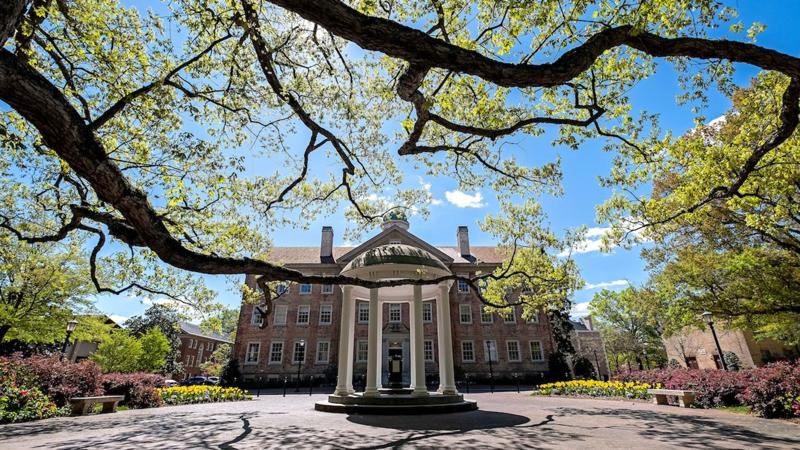Adoption of institutional neutrality is supported by better than 6 in 10 tenured and nontenured faculty at the University of North Carolina, Wake Forest University and Duke University, a report says.
Nationally, 66% of faculty say “colleges and universities should not take positions on political and social issues,” says Silence in the Classroom, the 2024 FIRE Faculty Survey Report. At Duke, the percentage is 71%, at Carolina 65%, and at Wake 64%.
Higher education is facing mounting challenges, from the costs to the positions it favors. Silencing students or faculty has drawn sharp criticism from Capitol Hill to every corner of the nation sending people to the ballot box.
Carolina, established in 1789, is the nation’s oldest public university. It also earlier this year became embattled in free speech controversy tied to the war between Hamas and Israel.
The Foundation for Individual Rights and Expression, as FIRE is more formally known, is a nonprofit nonpartisan organization billing itself as “defending and sustaining the individual rights of all Americans to free speech and free thought.” Surveys on topics related to free expression and academic freedom were made of 6,269 tenured, tenure-track and nontenure faculty at 55 four-year colleges and universities in America.
In North Carolina, the sampling was of 145 at Carolina, 80 at Duke, and 55 at Wake Forest.
For each campus, respondents said the top “difficult issue to discuss” is the Israeli-Palestinian conflict. Asked for top three issues, the Middle East saga was 79% at Carolina, 71% at Wake Forest and 68% at Duke.
Each campus was split on the second and third choices. At Duke, 57% said affirmative action and 51% transgender rights. At Carolina, 54% said affirmative action and 53% racial inequality. And at Wake, 63% said racial inequality and 55% transgender rights.
All were talking points of various candidates, particularly the presidential race, in the election cycle climaxing last month.
In response to faculty feeling “they could not express their opinion because of how others would respond,” the choices of “occasionally,” “fairly often” and “very often” drew a combined 69% at Wake Forest, 69% at Duke and 67% at Carolina. Fairly often and very often were 35% at Duke.
Statements pledging commitment to diversity, equity and inclusion is rarely or never justified of faculty job candidates, said 61% at Duke, 44% at Carolina and 42% at Wake Forest. Nationally, the response was 50%.
Academic freedom leaned more toward secure than not at all three institutions on a split of about 60%-40%.
As for faculty feeling a need to “hide their political beliefs from other faculty in an attempt to keep their job,” answers of “never” were chosen by 43% at Duke, 42% at Carolina and 36% at Wake Forest.
Among the national findings of the FIRE survey:
• More faculty (35%) than during the McCarthy era (9%) say they toned down their writing for fear of controversy.
• Threats of discipline for teaching, research, academic talks or other off-campus speech was incurred by 14%.
• Faculty feeling unable to speak freely for fear of how others would respond was 27%.
• Fear of damaged reputations because of misunderstandings with something said or done was 40%.
• Fear of losing jobs because of misunderstandings with something said or done was 23%.







